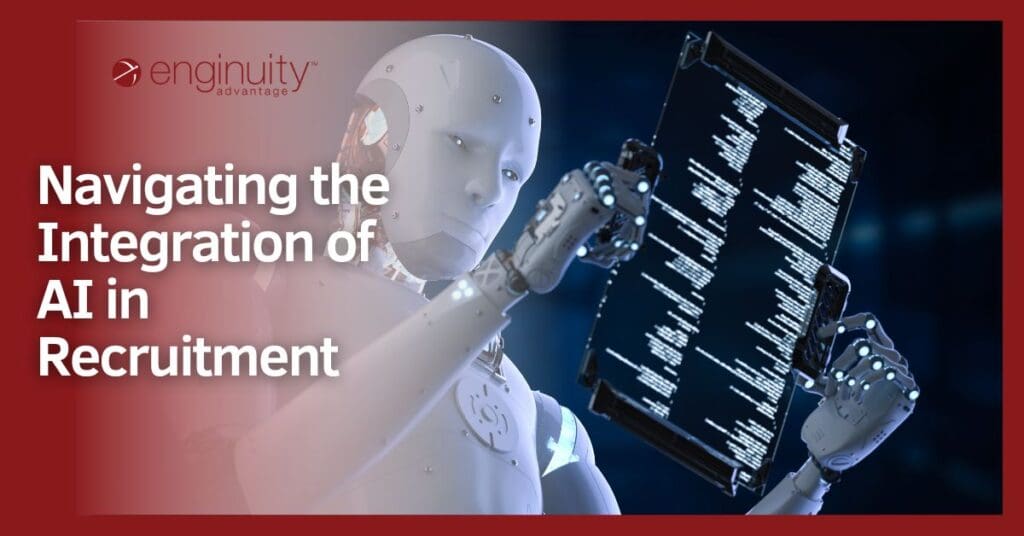Navigating the Integration of AI in Recruitment

As technology continues to advance, companies are increasingly adopting artificial intelligence (AI) to streamline their recruitment processes. From screening resumes to predicting candidate fit, AI brings unprecedented speed, efficiency, and accuracy to hiring. However, while its integration into recruitment offers immense benefits, organizations must navigate challenges and ethical considerations. In this article, we will explore how businesses can effectively leverage AI in recruitment while addressing potential pitfalls.
The Benefits of AI in Recruitment
AI technologies offer several key advantages in recruitment. One of the primary benefits is the ability to automate repetitive tasks like resume screening and candidate sourcing. Traditionally, recruiters could spend hours or even days manually reviewing applications to shortlist candidates. AI tools can analyze thousands of resumes in minutes, identifying the most relevant candidates based on predefined criteria like skills, education, and experience. This automation significantly reduces time-to-hire and allows recruiters to focus on higher-level tasks like interviews and relationship building.
Another benefit is the improvement of candidate matching. By utilizing machine learning algorithms, AI systems analyze historical hiring data to identify patterns that indicate successful hires. They can then assess new applicants against these patterns to predict which candidates are most likely to succeed in a particular role. This predictive capability enhances the quality of hires and reduces turnover.
Moreover, AI can improve diversity and inclusion in recruitment. Human biases, whether conscious or unconscious, can affect decision-making throughout the hiring process. AI systems can be programmed to prioritize a broader range of factors, helping to eliminate bias and ensuring a more diverse candidate pool. However, this benefit depends on proper data training and oversight.
Navigating Challenges and Ethical Considerations
Despite its many advantages, AI in recruitment presents several challenges and ethical issues. One significant concern is the potential for algorithmic bias. If the data used to train AI models contains historical biases, these biases can be perpetuated and even amplified by the system. For example, if past hiring decisions favored certain demographic groups, the AI may unintentionally screen out qualified candidates from underrepresented groups. To counter this, companies should ensure their data is diverse and representative and monitor AI outcomes for unintended biases.
Another challenge lies in the candidate experience. While AI can accelerate recruitment processes, it may lack the personal touch that candidates expect. Automated communications, for instance, can seem impersonal and discourage applicants if not carefully implemented. Balancing efficiency with a personalized approach is essential to maintaining a positive employer brand.
Moreover, data privacy and security must be prioritized. AI systems rely on processing large amounts of candidate data, raising concerns about how this information is collected, stored, and used. Companies must adhere to data protection regulations and ensure that candidate data is anonymized and securely stored.
Implementing AI Effectively
To successfully integrate AI into recruitment, organizations should adopt a strategic approach. The following steps can help businesses make the most of this technology:
- Define Clear Objectives: Start by outlining the specific problems you want AI to address, such as reducing time-to-hire or improving candidate matching. Clearly defined objectives will guide your AI strategy and the selection of appropriate tools.
- Select the Right Tools: Evaluate different AI tools to find those that align with your recruitment objectives. Consider user-friendliness, integration capabilities, and the ability to customize algorithms based on your unique hiring needs.
- Prioritize Data Quality: Ensure that the data feeding into AI models is accurate, diverse, and representative. Regularly audit AI outcomes for unintended biases and adjust data inputs or algorithms as needed.
- Blend AI with Human Insight: While AI excels at automating tasks and analyzing data, human recruiters provide critical context and intuition that machines lack. Combine AI analysis with human judgment to ensure well-rounded hiring decisions.
- Maintain Candidate Engagement: Incorporate personalized communication into automated recruitment processes. Tailor messages to candidates and offer opportunities for feedback to create a positive experience.
- Ensure Compliance: Stay updated on data privacy regulations, such as GDPR or CCPA, to handle candidate data responsibly. Anonymize sensitive information and ensure secure data storage.
Harnessing the Power of AI
AI offers transformative potential in recruitment, from streamlining hiring processes to reducing biases and improving candidate matching. However, its successful integration requires a careful, strategic approach that balances automation with personalization. By understanding the benefits, navigating challenges, and adopting best practices, organizations can effectively harness the power of AI to enhance their recruitment efforts and secure top talent for the future.
Unlock Dream Careers & Elite Talent: Just One Click Away!


